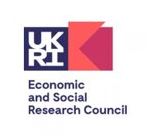ESRC-funded “Bystander Project”
Core research team: Adam Rutland, Ayşe Şule Yüksel, Tracey Anne Warren, Seçil Gönültaş, Sally Palmer, Eirini Ketzitzidou Argyri, Luke McGuire, Melanie Killen (University of Maryland)
This four year project examines children’s and adolescents’ bystander responses to hypothetical scenarios of social exclusion of immigrants.
The project draws from developmental intergroup theory (e.g., social reasoning development theory) to examine whether the following intergroup factors influence participants’ evaluations of the social exclusion from childhood into adolescence:
Study 1 examines identity, by varying the nationality of the immigrant peer (e.g., Australian vs. Turkish) and measuring participants’ own national identity.
Study 2 examines norms, by varying groups’ expectations around attitudes towards others (e.g., are they “inclusive” or “exclusive”).
Study 3 examines the role of shared knowledge and stereotypes about immigrants. It aims to understand how shared knowledge about certain peer activities and stereotypical generalization about immigrant related children’s and adolescents’ evaluations and their bystander responses to social exclusion.
Study 4 is a qualitative study that aims to identify the decision-making process in more detail: what the children and adolescents really want to do as a bystander, giving them the opportunity to provide the researchers with alternative ways to support a victim when they witness bullying.
Study 5 examines how descriptive peer group norms about bystander challenging (i.e., the peer group helping or doing nothing to help the excluded peer) influence children’s and adolescents’ bystander reactions to the social exclusion of immigrant/refugee peers.




